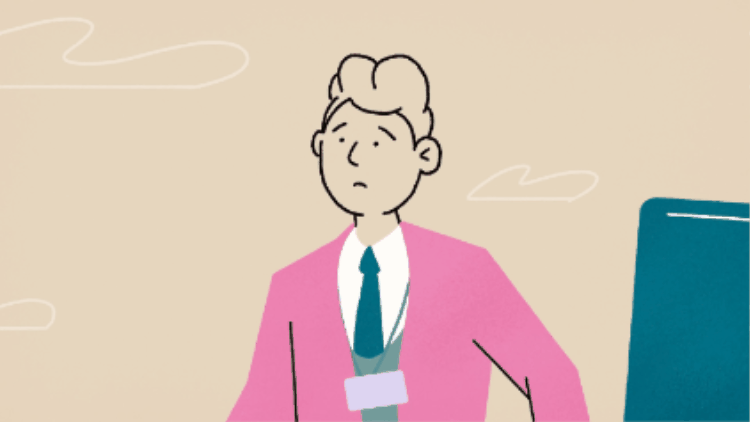Everyone's "Purpose-Driven" Now (But Are They Really?)
Every production company claims to be "purpose-driven" these days. It's the easiest thing in the world to say - slap it on your website, mention it in pitches, job done. But when charities actually need someone to handle their most sensitive stories, the conversation gets a lot more specific. This month, we're sharing two films that prove the difference between talking about purpose and actually delivering it.
Balancing Acts
Ask anyone who's worked in hospitality what their job involves, and you'll get the usual suspects: managing bookings, handling complaints, keeping the coffee flowing. You're forever spinning plates - sometimes literally - juggling a dozen moving parts while keeping customers happy.
But there's one more plate that matters more than most: helping keep children safe.
When the NSPCC launched their pilot programme for the hospitality sector, they needed more than just another animated explainer. They needed someone who understood that hospitality workers don't see themselves as part of child protection - and that's exactly the mindset this film had to change.
Working with animator Claire Pinegar (who also created our NSPCC Together for Childhood series), we walked a creative tightrope. Too clever with visual metaphors and you lose the message entirely. Too basic and you lose the audience before they've even started watching.
The solution was finding the right balance: adding just enough visual flair to keep people watching, while resisting the urge to overcomplicate things. Sometimes the most important creative decision is knowing what to leave out.
The animation became the gateway to a full safeguarding toolkit, proving that the hardest conversations often start with the simplest invitation: you're already good at looking after people, here's how to do a bit more.
When Timing is Everything
Three hours north of London, Michaela Williams unlocks the doors to Spring Bleau Café every other Saturday. What started as personal grief after her Nan Vanda's dementia diagnosis became something bigger - a space where tea, bingo, and unshakeable optimism make dementia feel a little less isolating.
When Dementia UK asked us to tell this story, the timing was brutal: filming would take place just weeks after Vanda's death. This is where years of experience matter more than any website copy ever could.
It meant countless conversations with Dementia UK to make sure we were doing right by Michaela. It meant a small, properly briefed crew who understood what they were walking into. It meant structuring interviews so we weren't hitting someone with their worst grief first thing in the morning.
Most importantly, it meant the difference between honouring and exploiting someone's memory. Vanda was a woman who inspired something full of energy and joy. The film had to reflect that - not lean into misery for emotional impact, but celebrate the community she'd helped create.
"Sometimes you feel like you are on your own," Michaela tells us. "But community is really important after a dementia diagnosis - because in the end, it's a community that holds you together, right?"







Why Experience Actually Matters When You’re Making Films That Matter
Strip away the surface details, and these are essentially telling a very similar story: people recognising they have power to help. The hospitality manager who notices something's not right. Michaela opening café doors every fortnight. Both choosing to step up and care a little more.
But getting those stories right? That takes more than good intentions and a nice website. It takes years of learning how to have difficult conversations, how to build trust with contributors, how to balance creative ambition with human sensitivity.
When charities vet production companies for projects like these, they're not looking at showreels. They're having conversations. They're asking about other initiatives beyond just making films. They're checking whether you actually understand what you're signing up for.
Both films are doing what good cause-driven content should do: starting conversations, shifting perspectives, and connecting people to real support. Because the most important stories aren't about grand gestures - they're about ordinary people choosing to care, one conversation at a time.
And in a world where everyone's suddenly "purpose-driven," that distinction matters more than ever.
You can watch both films on our website, here and here. And if either story moves you to action, that's exactly what we hoped for.



